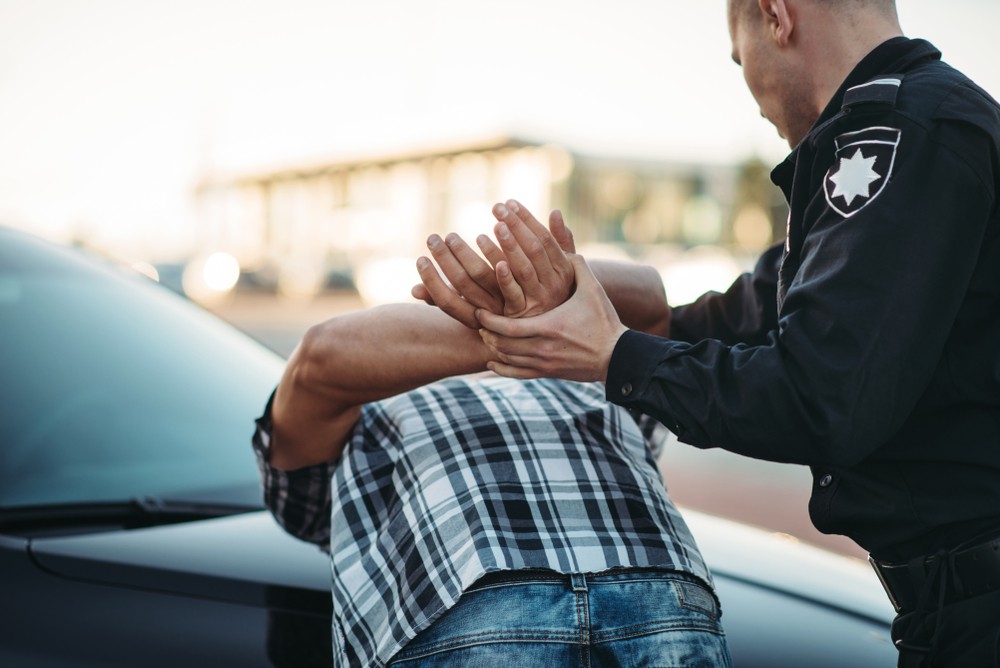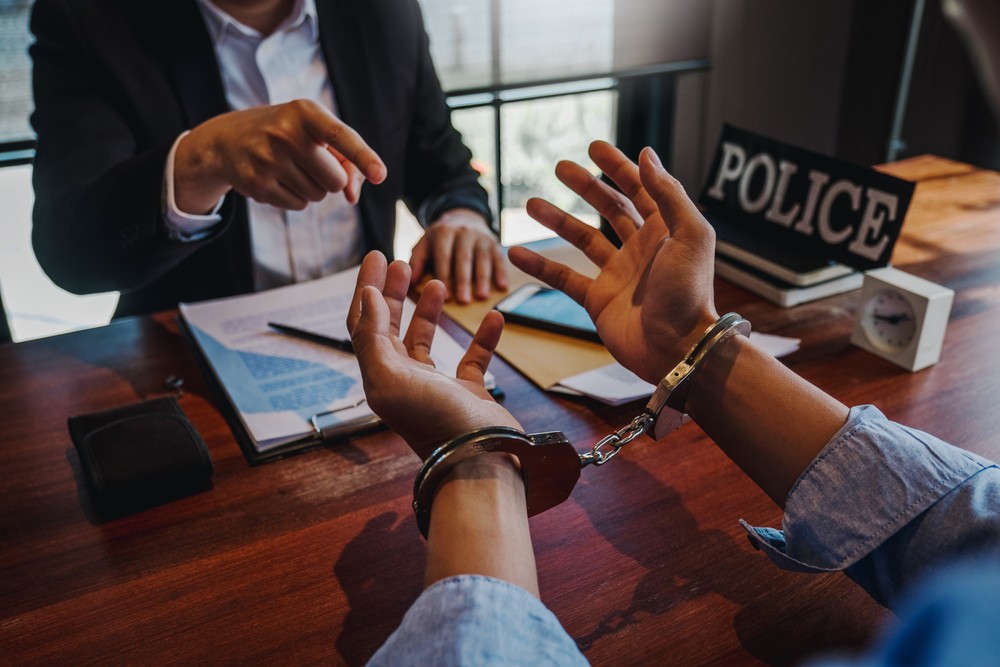
At Peaceful Leaders Academy, our commitment is to reshaping de-escalation training throughout the criminal justice sector and beyond. With a foundation in the powerful impact of education, our academy offers extensive de-escalation training programs designed to cater to a diverse group of professionals, including law enforcement officers and healthcare providers.
Our goal is to cultivate a world where conflict resolution is approached with empathy and understanding, thereby enhancing safety and cooperation within communities across various sectors.
High-stress encounters between the police and the public sadly sometimes result in the tragic use of force—potentially causing citizen injuries or worse. De-escalation training is essential for law enforcement officers. Effective de-escalation strategies can significantly reduce the need for the use of force, protecting both officers and citizens from potential harm.
Peaceful Leaders Academy is committed to equipping police with the skills needed to handle crises with competence and care.
Benefits of Police De-escalation Training
De-escalation training has a transformative impact within law enforcement circles. As society increasingly demands more accountable and humane approaches to criminal justice, de-escalation training has emerged as a pivotal tool in reshaping police interactions with the public.
These programs enhance public safety and also fortify the relationship between police departments and the communities they serve.
1. Reduction in Use of Force Incidents
One of the most measurable impacts of de-escalation training is the significant reduction in use of force incidents. Data consistently shows that police forces that have undergone extensive de-escalation training report fewer instances of force being used in the field.
For example, a study from the University of Cincinnati found that after implementing a full-scale de-escalation program, one large metropolitan police department saw a 28% decrease in the use of force over two years. These reductions not only promote safer interactions but also diminish the risk of violent incidents that can lead to civil unrest and officer injuries.
2. Promotion of Empathy and Crisis Intervention Skills
De-escalation training equips law enforcement officers with the necessary skills to better manage crises involving mental health issues, domestic disputes, or public disturbances. This training emphasizes empathy, patient listening, and the judicious use of authority.
Officers learn to recognize emotional triggers and respond in ways that de-escalate tensions. These skills not only aid in resolving immediate conflicts but also help identify underlying issues that can be addressed through community resources.
3. Building Trust and Positive Relationships With the Community
The implementation of de-escalation training is a critical step in building and maintaining trust between law enforcement agencies and the communities they serve. By adopting practices that promote de-escalation, officers demonstrate a commitment to preserving human life and dignity, which in turn fosters a positive image of the police.
Community relations improve as residents see police officers as protectors and allies rather than as adversaries. An example of this benefit can be seen in jurisdictions where community policing and engagement strategies have been prioritized, resulting in enhanced cooperation from the public in crime prevention efforts.

4. Enhancement of Officer Safety
De-escalation training protects the community and also significantly enhances the safety of the police officers themselves. By employing de-escalation techniques, law enforcement officers are less likely to find themselves in dangerous confrontations that could result in injury or worse.
Training that focuses on alternative strategies, such as verbal persuasion and conflict resolution, reduces the likelihood of physical altercations. Statistics from police de-escalation programs indicate that injuries to officers decrease as the use of these non-violent strategies increases, highlighting the dual benefit of this approach to both officer and public safety.
Positive Impacts on Community Relationships
The introduction of de-escalation training in law enforcement has not only transformed police practices but also significantly improved community-police relations. By prioritizing communication and understanding, these programs have fostered a more positive public perception of police, which is crucial in building a sustainable partnership with the community.
5. Improved Public Perception of Law Enforcement
The public’s perception of law enforcement officers is crucial in defining the relationship between the community and the police. De-escalation training helps police officers handle interactions more effectively, which often results in more positive encounters with the public.
With de-escalation training, there can be an improvement in public trust attributed to the professional and compassionate handling of incidents by trained officers compared to untrained officers. Such positive changes are pivotal, as they encourage a more respectful and cooperative dynamic between the community and the police.
6. Increase in Community Cooperation and Collaboration
De-escalation training also plays a significant role in increasing community cooperation and collaboration. When the public sees law enforcement officers using de-escalation techniques, including active listening and non-aggressive interventions, they are more likely to perceive the police as allies rather than adversaries. This perception promotes voluntary compliance and active participation in community safety initiatives.
The positive impacts of such training demonstrate that when police approach situations with an emphasis on preventing harm and resolving conflicts peacefully, communities respond with increased engagement and support.
7. Reduction in Civilian Complaints and Lawsuits
Another significant benefit of de-escalation training is the reduction in civilian complaints and lawsuits against police. Effective de-escalation prevents the escalation of force and further mitigates the misunderstandings and aggressive interactions that can lead to complaints.
Existing research indicates that departments where officers receive training in de-escalation tactics see a marked decrease in legal actions taken against them. This trend highlights how proper training not only protects citizens but also shields officers and departments from potential legal repercussions, thereby contributing to a more stable and trust-based relationship within the community.
Each of these aspects—improved perception, increased collaboration, and fewer complaints—illustrates the profound and multifaceted benefits that de-escalation training can offer. By integrating communications strategies that emphasize empathy and understanding, law enforcement agencies can build stronger, safer, and more respectful communities, ultimately enhancing the effectiveness of criminal justice initiatives across the board.
Case Studies and Real-Life Examples of De-Escalation Success Stories
The Tempe (AZ) Police Department provides a compelling example of how de-escalation training can yield positive outcomes both for the community and police officers themselves. In collaboration with Arizona State University, the department initiated a comprehensive de-escalation training program, which significantly altered how officers interact with the public. This initiative was part of the Smart Policing Initiative and involved a unique curriculum developed to meet the specific needs of their community and police officers.
The training program was deeply collaborative, involving feedback from a wide range of officers within the department, and included extensive curriculum design that pulled from a variety of sources and training models. One innovative approach was to harness the expertise of officers identified by their peers as skilled in de-escalation tactics, who helped shape the training content. This peer-driven approach helped ensure the training was grounded in real-world police work and reflected practices that were both practical and effective in their specific context.
The results from this training were noteworthy. Officers who underwent the training showed significant improvements in their interactions with the public, leading to a decrease in use of force incidents. Moreover, the training led to an environment where officers were more likely to engage in communication that emphasized empathy and rapport-building, which often resulted in peaceful resolutions without the need for citations or arrests.
This case highlights how tailored de-escalation training can positively impact police practices, improving safety and enhancing community relations, thereby serving as a model for other law enforcement agencies looking to implement similar programs.
The Tempe project reflects ongoing police research into effective de-escalation tactics, marking a significant contribution to criminal justice reforms aimed at reducing conflicts during police-public interactions. As such, the project not only improved immediate outcomes but also contributed to broader criminal justice goals of enhancing public trust and safety through improved police officer conduct.
This example from Tempe, alongside similar initiatives, underscores the critical role of de-escalation training in modern policing and its potential to transform interactions between law enforcement and the communities they serve. The positive changes observed post-training illustrate the profound impact that thoughtful and well-implemented de-escalation training can have on both individual and community levels within the sphere of criminal justice.
Peaceful Leaders Academy’s Approach to Police De-escalation Training
At Peaceful Leaders Academy (PLA), the approach to police de-escalation training is comprehensive and multifaceted. It is designed to equip law enforcement officers with the skills they need to effectively manage potentially volatile situations without resorting to excessive force. This training is crucial not only for police officer safety but also for enhancing interactions with the community.
Overview of Training Programs and Methodologies
PLA offers a variety of online training modules that focus on key aspects of de-escalation. The training includes learning how to recognize the signs of escalating conflict, employing strategies to maintain control over one’s emotions, and using verbal de-escalation techniques to calm others. These courses are developed by experts in conflict resolution. They are tailored to address the unique challenges faced by law enforcement officers in their day-to-day interactions.
Specialized Areas of Focus
Our police de-escalation training programs stand out due to their emphasis on psychological preparedness and resilience. One of the key components of the curriculum involves active listening, where officers are trained to listen to and understand the underlying concerns of the individuals they encounter beyond the immediate tension. This method aids in resolving the present conflict and also helps in building long-term trust within the community.

Another unique aspect of our approach is its focus on positive language. Officers are trained to use language that de-escalates rather than provokes, which can transform potentially hostile encounters into opportunities for problem-solving and cooperation. This shift from a confrontational to a collaborative approach is central to Peaceful Leaders Academy’s training philosophy.
We also offer specialized training for handling situations involving individuals with mental health issues or those in emotional distress. This training is particularly important given the increasing number of such encounters in law enforcement work today.
Transform Your Approach to Policing: Join PLA’s De-Escalation Training Today!
Our conflict resolution training for police is not just about reducing the use of force—it’s about changing the way officers perceive and interact with the public. By fostering a culture of empathy, understanding, and respect, our training helps create safer communities and more effective police forces.
If you’re interested in learning more about how PLA can help transform law enforcement practices through professional de-escalation training, consider joining our program. Explore our courses and start your journey toward becoming a more effective, empathetic law enforcement professional today. Visit Peaceful Leaders Academy for more details and enrollment information.



